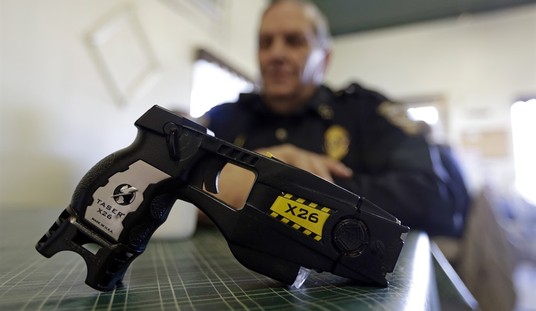Things are shaking up at the Department of Alcohol, Tobacco, Firearms and Explosives (ATF)…. and not in a good way.
The New York Times recently uncovered a secret bank account set up by rogue ATF agents out of Bristol, Virginia. The agents were illegally peddling cigarettes and stashing the money in this off-the-books bank account. The agents were directing their informants to buy untaxed cigarettes, mark them up and sell them for a profit, generating millions in profit.
From the New York Times:
The operation, not authorized under Justice Department rules, gave agents an off-the-books way to finance undercover investigations and pay informants without the usual cumbersome paperwork and close oversight, according to court records and people close to the operation.
The secret account is at the heart of a federal racketeering lawsuit brought by a collective of tobacco farmers who say they were swindled out of $24 million. A pair of A.T.F. informants received at least $1 million each from that sum, records show.
The scheme relied on phony shipments of snack food disguised as tobacco. The agents were experts: Their job was to catch cigarette smugglers, so they knew exactly how it was done.
Money from the operations was used for a number of activities, including the renting of a $21,000 hotel suite at a NASCAR race, a trip to Las Vegas and a monetary donation to agent Thomas Lesnak’s daughter’s high school volleyball team.
The ATF recently came under fire by Department of Justice Inspector General Michael Horowitz when he testified before the Committee on Oversight and Government Reform after the New York Times’ report forced Congress to launch an internal investigation.
…our audit also determined that ATF has not properly implemented practices that accomplish what is written in its policy, and ATF’s informant policies and procedures did not provide for adequate management of the program [Confidential Informant Program]…
Of particular concern is how the ATF stores information on its informants in three locations. The ATF keeps paper copies of basic background info on the informant; a hard-copy file that details the informant’s case activities and payments made to him or her; and an electronic database with only identifying information about the informants.
Maintaining information in this way made it difficult for us, and could make it difficult for ATF officials, to assess whether an informant was providing information that assisted ATF investigations, particularly those informants who were involved in multiple cases. Further, the automated system that ATF used during our audit to manage its informant information was unsophisticated and unreliable, and it did not retain historical information…
During Horowitz’s testimony, he made it very clear that the ATF is unable to properly manage their own program. According to Horowitz, as of January 2016, the ATF has over 1,800 confidential informants. Between fiscal years 2012 and 2015 the ATF spent $4.3 million annually to pay these informations via the Confidential Informant Program. And that’s just what’s on the books. Imagine what’s not.
What’s even more shocking? The ATF refuses to say who authorized the account, despite the account containing a combination of government funds and private money, something that is completely illegal.
The agents utilized this account to supplement their budgets for hotels, rental cars and travel to a tobacco convention. Agents also had their credit cards paid for by this account, although it is unclear whether or not those cards were personal or government-issued.
And the icing on the cake? This isn’t the first time these agents did something like this. A similar smuggling ring occurred in Hampton, Virginia in 2012, which raised millions of dollars and lead to zero arrests.
From the New York Times:
It is not clear whether Obama administration officials authorized the unorthodox account, which was opened at a time when the A.T.F. said it was tightening restrictions on undercover operations. The agency was also moving to improve its management after a botched gun trafficking investigation known as Fast and Furious.
According to Horowitz’s testimony, the ATF also mismanaged information relating to FFLs involved in Fast and Furious:
We were similarly unable to obtain from ATF an accurate and complete picture of informants who are also Federal Firearms Licensees. While we found that ATF’s policy provides guidance related to this informant category, we are concerned that ATF did not have a reliable method of querying its records to identify informants who may be a licensee.
Are you kidding me? We’re supposed to trust the ATF to “regulate” our firearms and they don’t even know what FFLs they forced to sell guns to criminals?
In our 2012 report on ATF’s Operation Fast and Furious and Related Matters, the OIG found that ATF was receiving information and cooperation from a licensee regarding firearms sales to individuals who were engaged in firearms trafficking and illegal firearms purchases. That report revealed that ATF did not have controls in place to ensure that there was no conflict between its use of the individual in an investigative manner and its oversight of the same individual as an approved license holder.
Horowitz just confirmed what we all knew about Fast and Furious: that the ATF was using its power to abuse FFLs into completing transactions to straw purchasers. FFLs complied out of fear of having their license pulled.








Join the conversation as a VIP Member